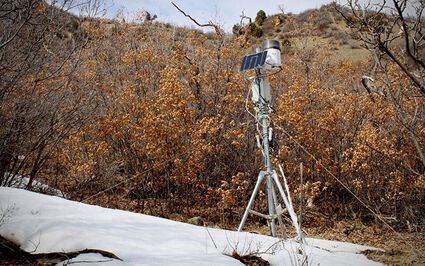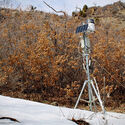Access to clean water, rights to Colorado River are high priorities for tribes
Last updated 6/23/2022 at 11:03am
Two recent moves aim to benefit water access for tribal communities in the Colorado River basin. One, a bill in the U.S. Congress, could increase access to clean water. Another, the release of a "shared vision" statement, outlines the goals of tribes and conservation nonprofits.
Tribes in the basin hold rights to about a quarter of the river's flow but have often been excluded from negotiations about how the river's water is used. At the same time, tribal communities often lack reliable access to clean water as a result of aging infrastructure and a history of underinvestment.
The Tribal Access to Clean Water Act, which was heard in May by the House Natural Resources subcommittee on water, oceans and wildlife, declares that "access to reliable, clean and drinkable water is an essential human need." It would allocate $2.3 billion across several federal agencies, all aimed at building and maintaining water infrastructure. Some of that work would be carried out by agencies themselves, such as the Indian Health Service and Bureau of Reclamation, while more than half of the funds would be made available for grant programs.
The bill was introduced by a bipartisan group of four representatives, including one from within the Colorado River Basin-Rep. Joe Neguse, D-Colo.
The measure is largely designed to fill in funding gaps left by the bipartisan infrastructure law-money to operate and maintain existing water systems, and engineer and construct new ones.
"The bipartisan infrastructure law provided extraordinary new funding for the infrastructure associated with tribal water systems," said Anne Castle, a senior fellow at the University of Colorado Law School. "But this bill provides the necessary human part of the equation."
She said new funding from the Tribal Access to Clean Water Act would prevent drinking water systems from deteriorating quickly.
Navajo Nation President Jonathan Nez said Native households are 19 times more likely than white households to lack access to clean drinking water through indoor plumbing, which he labeled "one of the great inequities of our time."
"Tribal water systems present unique challenges, such as managing high capital and operating costs in remote locations, and finding and retaining qualified water system operators," he said.
In May, a group of six tribes in the Upper Colorado River Basin released a "shared vision" in conjunction with 10 conservation groups, outlining their goals in management of the river. The statement puts forth a set of collective priorities held by tribes and environmentalists. Both groups say their interests are not adequately protected by the river's governing documents.

"In the Colorado River Compact of 1922," said Jennifer Pitt, Colorado River programs director at the Audubon Society, "there's no allocation of water to tribes, simply a recognition of the fact that the compact doesn't deal with tribal water rights, and there is basically no mention of the environment or management of environmental values."
The groups shared their vision as water users prepare to negotiate new operating guidelines for the river to replace rules set to expire in 2026. States historically have been the power players in similar negotiations, although calls for greater tribal inclusion have been growing since tribes were not consulted on 2007's interim guidelines.
Pitt said the priorities held by tribes and conservation groups-a 12-item list that includes protecting the river's "ecological integrity" and giving tribes greater influence in its management-are important at this juncture.
"The basin itself needs us," she said. "The Colorado River system is crashing. It's clear that our infrastructure and policy framework is not equipped to deal with the change that climate change is imposing on the basin. So it's an important time for new players to speak up and be part of management solutions."
The new vision statement follows a number of recent decisions in which tribes collaborated with governments or conservation groups to safeguard against drought and protect habitats. This includes tribal input on drought management plans in the Upper Basin, and the leasing of water from the Jircarilla Apache Nation to benefit endangered fish.

Alex Hager/KUNC
This soil-moisture monitoring station near Glenwood Springs, Colorado, helps researchers figure out how much snowmelt will make it to rivers and streams rather than be absorbed by dry soil on its way downhill.
"Each of these recent developments illustrate how tribes, conservation organizations and state and federal governments can work together to find and implement solutions that will help address the challenges of a drier future in the Colorado River Basin," said Daryl Vigil, water administrator for the Jicarilla Apache Nation.






